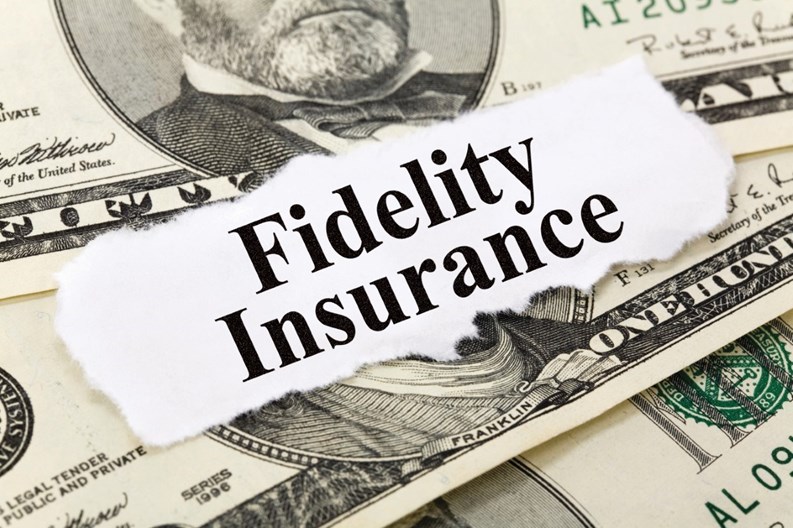With the economy in the throes of the worst financial crisis in decades, it’s no wonder that the world’s second oldest profession – thievery – is on the rise. The nefarious Bernie Madoff and others of his ilk have highlighted the vulnerabilities of all businesses to criminal activities, even ones that have been, historically, safe – including condominiums.
As a result of the subprime crisis, the Federal National Mortgage Association, or Fannie Mae, instituted a series of reforms earlier this year intended to prevent further defaults on housing loans.
One of these requirements involves a new insurance mandate that directly impacts a condominium buyer’s ability to secure loans. As of March 1, 2009, all condominiums (both new and existing) with 20 or more units must have what’s called fidelity insurance –basically, insurance against thieves – for a loan to be considered “conforming” by Fannie Mae. Previously, only new HOAs were required to have the coverage.
Conforming Loans
What is a conforming loan and how does Fannie Mae affect New England condominiums? Here’s how Fannie Mae operates at a local level:
Let’s say Denise wants to buy a condo for $400,000. After carefully considering her financial qualifications, the Bank of Small Town New England decides to grant her the mortgage. Now, the bank has a choice. It can either keep that mortgage in house – and with it, the chance that Denise might one day default –or they can do one of two possible transactions with Fannie Mae.
The bank can exchange Denise’s mortgage for either the cash value, or for a security backed by her mortgage that guarantees that Fannie Mae will make the mortgage payment every month, on time, in full. The second option costs a bit more, but it’s a matter of risk assessment. Who’s more likely to default on the loan in the next 30 years, Denise or a monolithic entity implicitly backed by the U.S. Treasury?
Loans that follow the Fannie Mae guidelines are known as “conforming” loans, with the opposite being “non-conforming.” Meeting the qualifications brings a host of benefits, including lower rates, and banks are leery of making non-conforming loans if they don’t have to. So it’s in the interest of the homeowner association (HOA) to play ball with Fannie Mae’s fidelity insurance requirement –or many loans could be torpedoed, limiting potential sales and adversely affecting resale values.
Add-On Coverage
The required fidelity insurance, in short, protects an HOA from in-housethieves.
“It’s part of the crime coverages,” explains Les Stacy, commercial lines manager for Skelly Insurance in Boston. “It covers embezzlement or theft of monies of some kind.”
Usually, fidelity insurance is an add-on to Director’s and Officer’s (D & O) insurance. But now, Fannie Mae is requiring it for all homeowner associations. “The owners' association (or cooperative corporation) must have blanket fidelity insurance coverage for anyone who either handles or is responsible for funds that it holds or administers, whether or not that individual receives compensation for services,” according to Fannie Mae. Depending on the size and complexityof the HOA, that could include the treasurer, the rest of the board, and the accountant.
“My understanding is, Fannie Mae is now requiring that associations maintain fidelity insurance,” says Joel Meskin, vice president of community associations insurance products with the Ohio-based McGowan Insurance.
Fidelity insurance usually protects from criminal activity by employees – in-house theft. Because many of the people who handle money for an HOAare volunteers, the wording of the coverages in those policies changes.
“We’ve had to expand the definitionof ‘employee’ to include non-compensated employees,” Meskin says.
Property managers are singled out in the new Fannie Mae requirements: “A management agent that handles funds for the owners' association (or cooperative corporation) should be covered by its own fidelity insurance policy, which must provide the same coverage required of the owners' association (or cooperative corporation),” according to Fannie Mae.
Crime coverage differs from liability coverage in that there is a clear cap on how much insurance you should have. “Crime coverage is a first-party coverage,” Meskin says. “You only insure what you have. You don’t have to worryabout a jury awarding $2 million in damages, like on slip-and-fall.”
The formula for determining the size of the policy is pretty cut-and-dried.
“Take a pencil, total up the amount of all your accounts, all the money you have in the bank, and add three months of operating funds,” Meskin says. “That’s the amount of limits you need to have.”
And then there is the additional Fannie Mae requirement. If the fidelity coverage has a deductible of, say, $1,000,the HOA must keep that $1,000 in the bank, with a budget line, in the event that a claim is filed.
But say your HOA has a fire, and winds up with a million dollars in the bank from the insurance settlement. The treasurer, who is retirement age, might not have risked going to jail for $30,000. But seven figures may prove too tempting.
“He might think, ‘A million dollars could get me a couple of years in the Caymans,’” Meskin says. In that case, if the HOA did not review the limits, it would only recover the insurance on the limit, not the amount stolen.
Most Thefts Not Reported
One case, in suburban Maryland, amounted to a $2.4 million settlement. In another high-profile case, in Ohio, a management company absconded with funds from 50 clients –some $3.4 million in all.
Most of the time, though, fidelity cases are not reported and the details are not made public.
“In normal cases, in the condo context, if it’s not a property manager, it’s a case of opportunity,” Meskin says. “’I’m the treasurer, I’ll borrow some money, I’ll pay it back before anyone notices, no harm no foul.’ Of course he doesn’t pay it back, and down the line he gets caught. These are not professional criminals, so they work out a reimbursement plan in exchange for not publicizing it.”
But the insurance carrier demands a certain zeal before making a payment.
“You have to be willing to prosecute,” Stacy says. “In a small building, it could be someone’s brother or a family member who’s been playing the horses, and always intended to pay the moneyback. The person who caught him doesn’t want to put him in jail. He only wants it to end.”
Condominiums that want to avoid thefts in the first place, can take a number of steps, according to CynthiaDunham, executive director of The Leadership Centre in Chandler, Arizona, a non-profit organization that educates HOA board members on a variety of issues, including theft prevention.
“There is no substitute for board diligence,” says Dunham. Board members, she advises, need to take time out of their busy schedules to check on the condominium account frequently. “In this day and age of electronic banking, it’s very easy for the treasurer or someone on the board to have electronic access to the account. They can view statements online. They can even go in and take look at individual checks, or see who endorsed them,” she says.
Divide Up Financial Duties
Another useful precaution, Dunham says, is dividing up financial duties. “A separate person would make deposits then the person who reconciles the bank account. And in small organizations, where you don’t have the ability for different people to take in the money and make the deposits and do the accounting, then there needs to be someone else who can at least review what’s being done,” she says. Proper oversight cannot only prevent theft, but can prevent a board member from being “falsely accused of doing something that is improper,” Dunham says.
Education of board members is another key component in preventing theft, says Dunham. Board members can take local community college classes or seminars offered by the Community Associations Institute, she says. “Whoever gets elected [to the board] needs to understand their fiduciary duty,” she says. “They [condominiums] have laws they function under. They file tax returns, they hire employees and enter in contracts. So they’re businesses.”
Greg Olear is a freelance writer and a frequent contributor to New England Condominium magazine.
Managing Editor Jim Douglass contributed to this report.







Leave a Comment